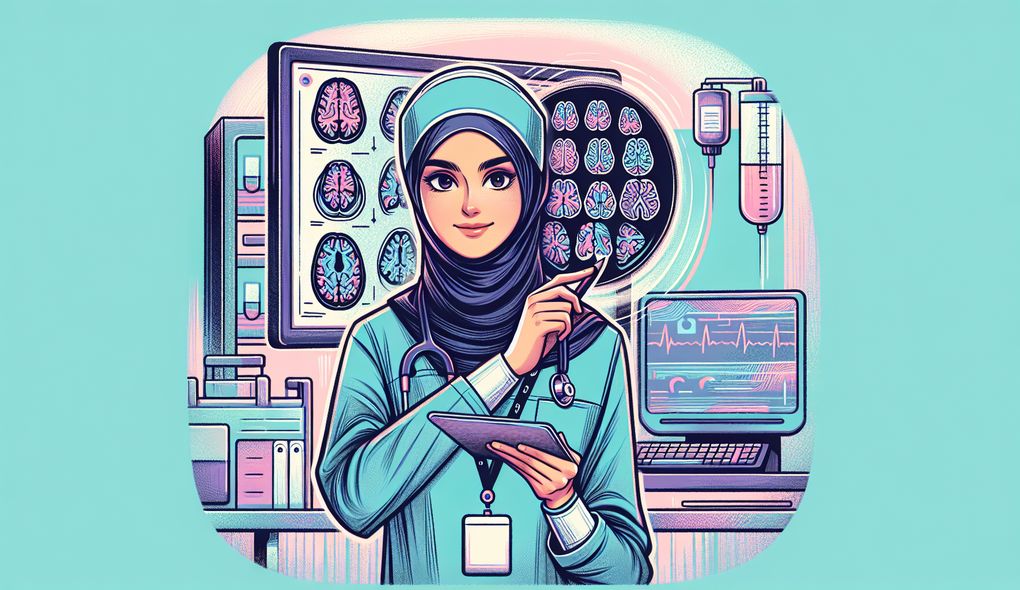Can you describe the process you follow when conducting initial patient assessments and neurological examinations?
JUNIOR LEVEL

Sample answer to the question:
When conducting initial patient assessments and neurological examinations, I follow a systematic approach to ensure a comprehensive evaluation. First, I gather the patient's medical history, including any past neurological issues or treatments. Next, I perform a thorough physical examination, focusing on the patient's neurological functions such as reflexes, sensation, coordination, and cognition. I also conduct specific tests and assessments based on the patient's symptoms and condition. Throughout this process, I maintain open communication with the patient, explaining each step and addressing any concerns they may have. Finally, I document my findings, develop an individualized plan of care, and collaborate with the neurology healthcare team to provide the best treatment options for the patient.
Here is a more solid answer:
When conducting initial patient assessments and neurological examinations, I prioritize building a rapport with the patient to create a comfortable and trusting environment. I start by gathering the patient's medical history, focusing on any neurological symptoms or previous diagnoses. As part of the physical examination, I assess the patient's cranial nerves, motor strength and coordination, sensory perception, reflexes, and cognitive functions. I use specific tools and techniques, such as the Glasgow Coma Scale or the Mini-Mental State Examination, to evaluate their neurological status. Throughout the process, I explain each step to the patient in simple terms, ensuring they understand the purpose and significance of the assessments. I also take the time to address any concerns or questions they may have. After completing the assessments, I document my findings accurately and thoroughly. I collaborate with the neurology healthcare team to develop an individualized plan of care based on the patient's needs and goals. Additionally, I provide education and support to the patient and their family, explaining the nature of their neurological condition, treatment options, and potential outcomes. I believe in empowering patients by involving them in their care decisions and promoting self-management. Overall, my goal is to provide compassionate, comprehensive, and evidence-based care to patients with neurological disorders.
Why is this a more solid answer?
The solid answer provides more specific details and examples of the candidate's clinical skills, as well as their effective communication and patient education abilities. It demonstrates their ability to gather a comprehensive medical history, perform specific neurological assessments, and document findings accurately. The answer also highlights their approach in building rapport with patients and involving them in their care decisions. However, it can still be improved by providing more examples of specific tools and techniques used during the assessments, as well as addressing the candidate's ability to collaborate with the healthcare team and monitor patient progress.
An example of a exceptional answer:
When conducting initial patient assessments and neurological examinations, I follow a systematic and patient-centered approach to ensure holistic care. Firstly, I establish a therapeutic relationship with the patient by actively listening, showing empathy, and addressing their concerns. I conduct a comprehensive interview to gather their medical history, focusing on neurological symptoms, family history, and risk factors. During the physical examination, I perform a detailed assessment of the patient's cranial nerves, motor function, coordination, sensation, reflexes, and mental status. I utilize specific tools and tests, such as the NIH Stroke Scale, Modified Ashworth Scale, and Montreal Cognitive Assessment, to evaluate their neurological function accurately. I also collaborate with other healthcare professionals, such as neurologists and physical therapists, to ensure a multidisciplinary approach. Throughout the assessment, I emphasize education and provide clear explanations, using visual aids when necessary, to enhance the patient's understanding of their condition and treatment plan. I take the time to set realistic expectations and answer any questions they may have. After the assessment, I document my findings meticulously, utilizing electronic medical records systems for accuracy and efficiency. I proactively monitor the patient's progress, adjusting treatment plans as necessary, and ensuring timely follow-up appointments. By staying updated with the latest advancements in neurology nursing through continuous professional development, I strive to provide evidence-based and compassionate care to patients and their families.
Why is this an exceptional answer?
The exceptional answer demonstrates the candidate's ability to go above and beyond in each aspect of the initial patient assessments and neurological examinations. It highlights their patient-centered approach, active listening skills, and empathy. The answer also provides specific examples of tools and tests used, as well as collaboration with other healthcare professionals. Additionally, it emphasizes the candidate's commitment to continuous professional development. To further improve the answer, the candidate could include examples of their critical thinking and problem-solving skills in complex clinical situations, as well as their ability to manage treatment regimens and document patient care accurately.
How to prepare for this question:
- Review and familiarize yourself with commonly used neurological assessment tools and tests, such as the Glasgow Coma Scale, NIH Stroke Scale, or Mental Status Examination.
- Practice effectively communicating complex medical information to patients using plain language and visual aids.
- Reflect on past experiences where you demonstrated strong clinical skills, effective communication, and patient education abilities in a neurological setting.
- Stay updated with the latest advancements in neurology nursing through professional development opportunities, such as conferences, workshops, or online courses.
What are interviewers evaluating with this question?
- Clinical skills with a focus on neurological examinations
- Effective communication and patient education abilities

